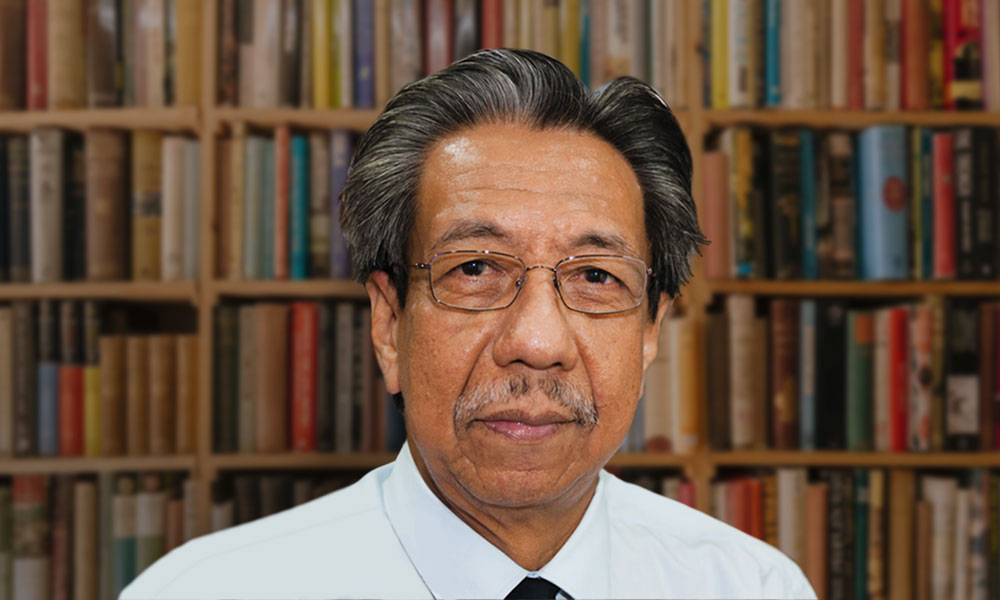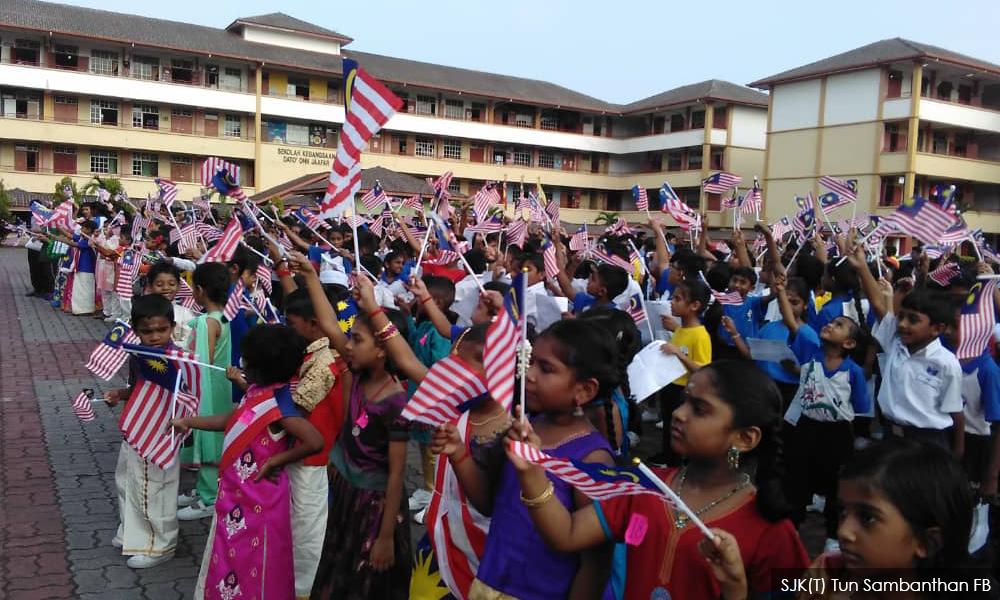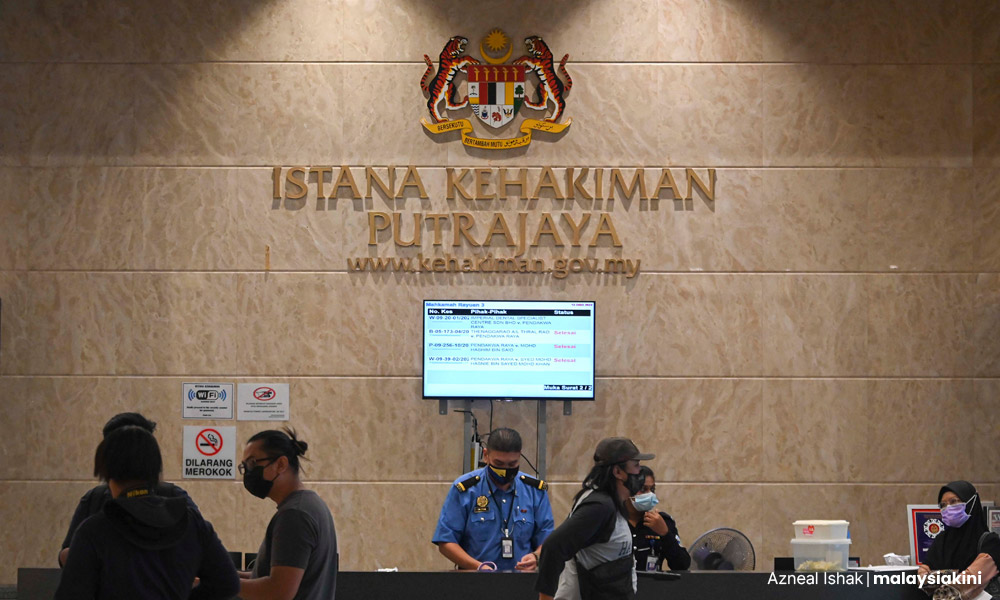Academic Teo Kok Seong met the police recently to respond to the reports lodged against him for making a statement with the intention to incite. This provides him with the opportunity to refute the charge.
In addition to this claim, Teo appears to have provoked further racial, and political controversy and division by asserting in the Merdeka Times video that the existence of Chinese schools is the reason why the Chinese community thinks badly of the Malays.
Teo’s comments follow the Federal Court’s decision in support of a ruling by the Court of Appeal which states that vernacular schools are constitutional and recognised the use of Chinese and Tamil languages in vernacular schools or national-type schools.
Non-Malay social media users have upbraided Teo’s comments. The more charitable ones have questioned his motive in demonising vernacular education and the Chinese community without providing evidence or scholarship to support his viewpoint.
Others have noted that his views echo those of extremist politicians and a few fellow academic opportunists. These advocates of assimilation are seen as the ones creating disunity by using the vernacular schools as the scapegoat for the nation’s racial and religious problems.

Amongst his supporters, those standing out have argued the case for academic freedom and Teo’s right to voice alternative views.
Academic NGO, Pergerakan Tenaga Akademik Malaysia (Gerak) argued that respect for academic freedom is essential towards developing a society that is cohesive, knowledgeable, mature and intellectual.
However, at the same time, it reiterated its belief that vernacular schools are not to be blamed for disunity.
It noted that the vernacular schools offer greater opportunities to foster interracial understanding through dialogue. Both these positions are diametrically opposed to Teo’s.

The NGO also noted that the issue had been polarised by Malaysia’s race-based political system, with politicians using it to woo support.
Gerak should have acknowledged that some academics and academic organisations are not exempt from playing the race card, with more than a few equally as adept as politicians and for the same opportunistic reasons of self-advancement.
The timing of this controversy is perfect for Teo and his supporters in the anti-vernacular school movement who are intent on fighting against the most recent court decisions.
Teo, now, has the golden opportunity to take his case beyond the courts to the academic community as well as to policymakers. Hopefully, this will resolve the issue of the existence of vernacular schools once and for all. Otherwise, it will continue to be a festering wound in our nation.
Teo’s research on vernacular education, schools
So far, Teo’s writing on the subject of vernacular education has mainly appeared in the Malay media.
His research work on the subject appears quite scanty despite being the recipient of generous research funding grants.
Currently, a high-ranking researcher, Teo has listed his expertise in numerous fields, including some that are not only non-academic but would be sniggered at or greeted with puzzlement if recorded in respectable academic institutions.
However, this is Malaysia and his professed specialisation in “ethnolinguistics; linguistic anthropology; peranakan phenomenon; nation building; national unity and integration” has undoubtedly impressed many and contributed to his career advancement.
In fact, his curriculum vitae on the Universiti Kebangsaan Malaysia website runs to many pages.
Dominated by the numerous columns that appear in his name in Utusan Malaysia, Berita Harian, Dewan Bahasa and the other non-academic outlets diligently listed, it is easily accessible for all viewers to gape at.
However, Teo’s CV doesn’t appear to show evidence that he has done extensive or indeed, any, research on the controversial subjects that he has been expounding on which are regularly published in the Malay media.
Without well-designed social science tools and empirical research, it looks like Teo has relied on hearsay and his own, and the bias and prejudice of his circle of friends and academic associates, to arrive at his conclusions on education and race relations.
There is also no indication that his academic work, apart from his expertise in Malay literature, on these subjects, has appeared in any respectable academic publication or journal.

Interested parties in this controversy such as the Islamic Education Development Council (Mappim) and Confederation of Malaysian Writers Association (Gapena) which contested the Court of Appeal’s ruling; and Universiti Kebangsaan Malaysia, the National Association of Professors and Institut Kajian Etnik (KITA) can play a key role in Teo’s defence by publicising his academic work as well as by organising forums and workshops in relation to education and national unity.
Besides taking into account the views of the Chinese community - the prime target of Teo’s attack - the position of other stakeholders, especially the more than 100,000 non-Chinese, primarily Malay children, enrolled in the nearly 2,000 vernacular schools (and their families) must be given weight.
According to critics, these schools have long been the “stepchildren” of the national educational system and continue to be discriminated against by the government in funding, land allocation, facilities, etc.
Perhaps, Teo may want to provide his “expert” analysis on this.
Since independence, possibly several million Malaysians, including a considerable number of non-Chinese and non-Indians, have graduated and benefited from vernacular schools.
There is absolutely no evidence that the schools comprise a disunifying force or that they have bred “arrogance” or a sense of racial superiority or disparagement of other races.
Such baseless charges can similarly be easily hurled against their counterpart or other sectors of the educational system, including Teo’s university.
Data from Dong Zong has tracked the steady increase in non-Chinese student enrolment from 1989 to 2020 in Chinese vernacular schools.
From a small enrolment of 17,309 students or 3.05 percent of total students in 1989, non-Chinese students have increased to 32,203 or 5.52 percent (1994), 52,043 or 8.66 percent (1998), 71,644 or 12 percent (2011), 80,024 or 13.32 percent (2012), 87,463 or 15.31 percent (2014), 94,608 or 18 percent (2017), and an estimated 101,011 or 19.75 percent (2020).
It is this increase in Malay enrolment in Chinese vernacular schools that is possibly the key underlying concern for the ultra-Malay nationalists.
Today, the enrolment of so many Malay students in the vernacular schools, despite the massive propaganda campaign against them, is irrefutable proof of the public and Malay confidence in the quality of these schools and their belief that vernacular schools provide a superior and more multi-racial schooling to their children than is available in national schools.
Testimonies of the beneficial role that vernacular schools have played in the lives and careers of many non-Chinese members of our society have appeared in many places. The Education Ministry would do well to support their development.
Beyond culture war, perversion of national unity
Achieving a secure, confident and inclusive nation will never come about when the major and dominant community in the country is consumed by and obsessed with this form of culture war and its ill-informed and perverted conception of national unity.
Such culture wars, including the celebration of Christmas, Valentine's Day, bak kut teh and now socks, distract all of us from dealing with the far more serious issues of educational reform and the lagging economy.
In fact, these wars focusing on race and religion ultimately negatively impact the community that they are supposed to protect or uphold. - Mkini
LIM TECK GHEE is a former senior official with the United Nations and World Bank.
The views expressed here are those of the author/contributor and do not necessarily represent the views of MMKtT.




No comments:
Post a Comment
Note: Only a member of this blog may post a comment.